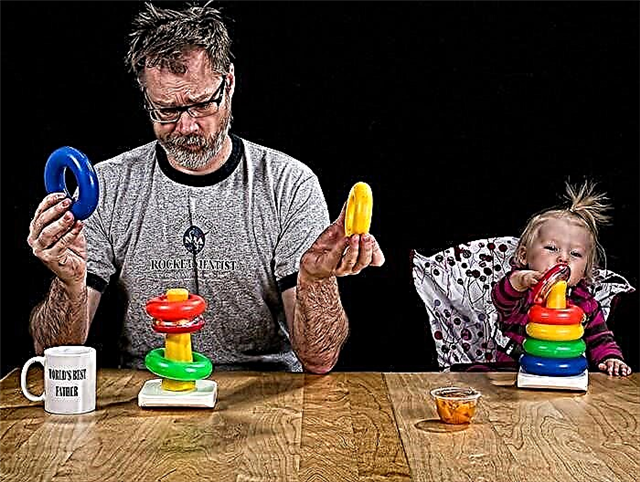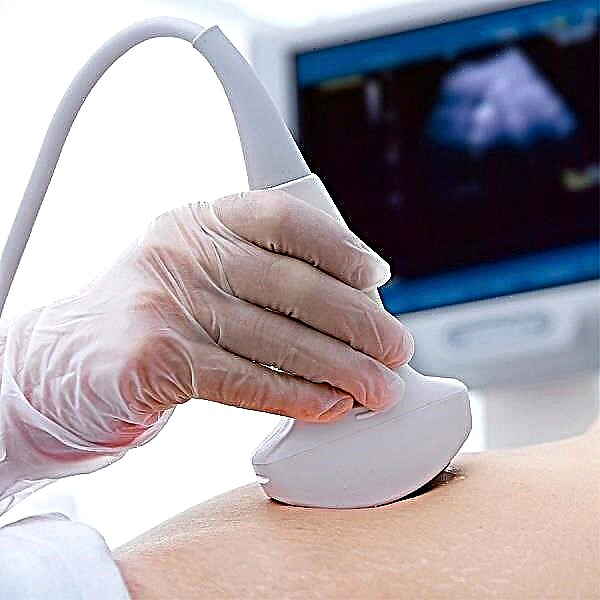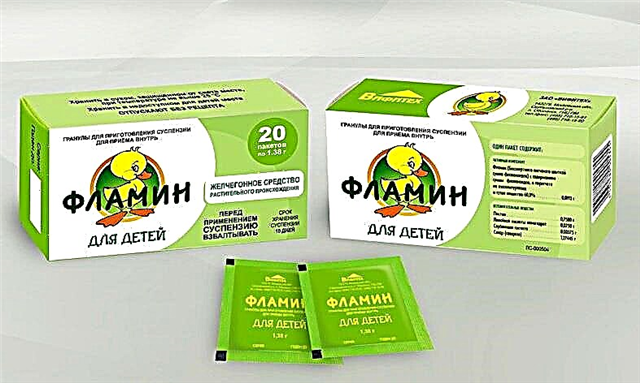
Kidney disease is one of the most common childhood pathologies. The influence of numerous factors leads to their development. The danger of such pathologies is that they often turn into chronic forms with frequent occurrence of unfavorable complications.
What it is?
The inflammatory process in the kidneys, in which the calyx-pelvic system is damaged, often leads to the development of pyelonephritis. The disease occurs at different ages, including in children. Both a baby and a teenager can get sick. According to statistics, the first cases of pyelonephritis are found in young babies. This disease is one of the most common in pediatric urology.
The development of damage to the calyx-pelvis system is caused by the inflammatory process, which is triggered by various provoking causes. The most common of these are bacterial or viral infections. As a result of this effect, a cascade of inflammatory reactions is triggered in the body, leading to damage to the excretory system of the kidneys.


Normally, the calyx-pelvic system or PCS is needed for the accumulation and elimination of urine, which is formed in the kidneys.
In the event of an inflammatory process, the normal operation of the PCS is not possible. This leads to the appearance of adverse symptoms associated with urinary disorders.
According to statistics, girls most often suffer from pyelonephritis. This feature is due to the fact that by nature their urethra is somewhat shorter and narrower than in boys.


Doctors identify several dangerous critical periods when the kidneys are most sensitive to the effects of various adverse factors. These include:
- age from birth to two years;
- 5-7 years old;
- teenage years.
At this time, you should monitor the baby's well-being as closely as possible. If you show any signs of impaired or painful urination, you should definitely show your child to a doctor.
Over time, an acute process can turn into a chronic one, which significantly worsens the prognosis of the course of the disease. Chronization usually takes several months.


Chronic pyelonephritis requires constant monitoring of the child and a course of preventive treatment, which is usually prescribed by a pediatric urologist. With properly selected therapy and the absence of aggravating reasons from the health of the child, chronic pyelonephritis does not occur.
Causes of occurrence
A variety of causal factors can lead to the development of kidney damage. They can act in isolation or simultaneously. The constant influence of causative factors contributes to the formation of persistent and chronic forms of the disease. The following reasons lead to the appearance of pyelonephritis in a child:
- Bacterial infections. They are leaders in the structure of the incidence of pyelonephritis. Usually, the culprits of the disease are: various forms of streptococci, staphylococci, toxoplasma, chlamydia, ureaplasma and representatives of the anaerobic flora. They quickly enter the kidneys through the systemic circulation and cause severe inflammation in them. The clinical forms of the disease caused by the bacterial flora are usually quite severe with severe symptoms of intoxication.


- Viral infections... They lead to the development of pyelonephritis much less frequently than bacterial ones. Adenoviruses, ECHO viruses, and Coxsackie viruses can cause kidney damage. The peak incidence of viral pyelonephritis usually occurs at the age of 2-3 years. These diseases proceed with an increase in body temperature and impaired urination.
- Various anatomical defects. The presence of congenital kidney pathologies leads to the accumulation of urine in the calyx-pelvic system and its pronounced stretching. Ultimately, this contributes to the development of pyelonephritis. Usually, such congenital forms of the disease are detected in babies under one year old. In some cases, surgery is required to eliminate the cause.
- Frequent colds. If a baby suffers from respiratory diseases up to four times a year, then he is at risk for the development of chronic pyelonephritis. During any respiratory illness, the child's body is greatly weakened, and immunity is noticeably reduced. This leads to the spread of infection throughout the body and involvement in the inflammatory process of the kidneys with the development of chronic pyelonephritis.


- Secondary foci of infection. In babies, they usually become sick teeth and chronic diseases of the ENT organs. Any immunodeficiency condition only contributes to the early development of pyelonephritis.
In time, untreated foci of secondary infection provoke a weakening of the immune system and lead to the spread of pathogenic microorganisms throughout the child's body.
- Traumatic injury... Lumbar blows can damage the kidney tissue, which ultimately contributes to the development of chronic nonspecific pyelonephritis. Falls on the back from a height and various car accidents can also be the causes of chronic kidney disease.
- Severe hypothermia... Exposure to cold temperatures has a negative effect on the entire child's body, including the kidneys. The cold causes a pronounced spasm of the vessels that feed the renal tissue. After a while, this leads to the development of inflammation in the pelvis, which is the first sign of the development of pyelonephritis in the future.
- Dysbacteriosis. Dysbacteriosis is a functional disorder of the intestines. It often develops after an infectious disease suffered by a child. Disrupted bowel function contributes to the accumulation of toxic metabolic products, which leads to an imbalance in the functioning of the kidneys.
- Gynecological diseases (in girls). The structural peculiarity of the female urinary and reproductive system causes an easier way of infection. Babies with genital diseases, according to statistics, get sick with chronic pyelonephritis three times more often.


Classification
Currently, doctors distinguish several nosological groups of diseases. Such a division is carried out taking into account the reasons that caused the disease, as well as the timing of the onset and persistence of adverse symptoms.
According to the duration of the course, the following clinical types of pyelonephritis are distinguished:
- Acute. Acute pyelonephritis is recorded for the first time in life. It is characterized by the appearance of vivid unfavorable symptoms of the disease. With improperly selected treatment and untimely diagnosis, the process may become chronic.
- Chronic... Chronic pyelonephritis is characterized by prolonged development. The diagnosis is established in babies with abnormal urine tests and / or clinical symptoms for 12 months. The disease has an undulating course: periods of remission are replaced by exacerbations. To eliminate adverse symptoms, a comprehensive treatment is required.
Some experts also use other classifications of this disease. So, in the absence of reliably identified causes that would lead to the development of the disease, they speak of primary pyelonephritis.


Secondary pyelonephritis is the most common form of the disease.
In this case, doctors can accurately determine the cause that contributed to the development of the disease in the baby.
Urologists offer another division of the clinical forms of pyelonephritis - by the presence of an anatomical obstruction to the outflow of urine. Given this classification, the disease can be obstructive and non-obstructive.
The presence of any anatomical obstruction to the outflow of urine (obstruction) leads to the development of a secondary obstructive form of the disease. Often this situation occurs with various congenital anomalies of the kidneys or urinary tract.

Secondary non-obstructive pyelonephritis occurs against the background of various metabolic pathologies (dysmetabolic disorders), with immunodeficiency states, as well as with severe cardiovascular disorders.
It is important to note that primary pyelonephritis is not common. According to statistics, it is registered only in 10-12% of cases.
Each year, the proportion of primary pyelonephritis in the structure of kidney morbidity decreases. This is due to the improvement of the clinical and laboratory facilities and the development of new diagnostic methods that help to establish the causes of various forms of renal pathologies in babies.

During chronic pyelonephritis, doctors distinguish several successive stages:
- active chronization of the process;
- persistent changes in urine tests;
- transition to clinical laboratory remission and periodic exacerbations.
A prolonged inflammatory process leads to various structural changes in the kidneys and urinary tract. So, the kidney tissue begins to be replaced by connective tissue. This contributes to the development of complications of the disease and even the possible formation of renal failure.
Symptoms
The disease proceeds in different ways. In some cases, it may not manifest itself in any way. This course of the disease is called latent or latent.
To establish a diagnosis and identify the disease in this situation is possible only by monitoring the analysis of urine and conducting an ultrasound examination of the kidneys.
Latent pyelonephritis occurs quite often in pediatric practice.


Acute pyelonephritis or exacerbation of a chronic one is accompanied by the appearance of various adverse symptoms. Their severity can be different. This directly depends on the initial state of the baby, as well as the presence of concomitant diseases.
In children with signs of immunodeficiency, the disease manifests itself as clearly as possible.
For the acute course of the disease, the following symptoms are characteristic:
- Increased body temperature. In most cases, its values reach 38-39.5 degrees. Usually the temperature lasts for a week, and then gradually decreases during treatment. Bed rest and taking antipyretics helps to quickly improve the general condition of the body and normalize the child's well-being.
- Pain in the lumbar region... This is not always the case. With a one-sided process, soreness appears only on the affected side. Bilateral pyelonephritis is accompanied by the spread of pain throughout the lower back. The symptom is aggravated by tapping in the lumbar spine.
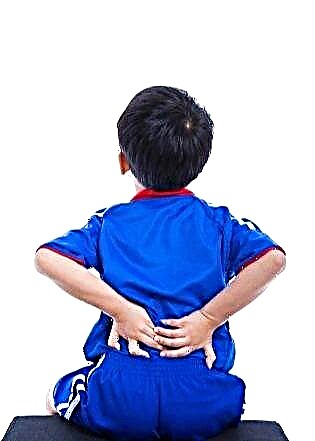

- Intoxication. It can be very pronounced. Against the background of high body temperature, the baby has chills, shakes and fever. The child eats less, tries to spend more time in the crib. The baby's appetite decreases and sleep may be disturbed.
- Violation of urination. Usually, your baby will feel the urge to urinate more often. The urine portion may be slightly reduced in volume. The total volume of excreted fluid per day decreases, but insignificantly. In some cases, if cystitis is present, the child also experiences a burning sensation or soreness during urination.
- Discoloration of the skin... Chronic pyelonephritis, especially with frequent exacerbations, leads to the fact that the baby's skin becomes pale and dry to the touch. The area under the eyes usually takes on a bluish tinge. The baby looks sick and emaciated.
- The appearance of edema... They are usually located on the face and especially in the eyelids. Chronic pyelonephritis, occurring with severe nephrotic (edematous) syndrome, leads to the development of puffiness and pastiness in the child. On pale skin veins located subcutaneously are clearly visible.
- Changes in the smell of urine. This symptom is often identified by parents of newborns and babies. Mom, pouring the baby's urine from the pot, notice that it becomes cloudy and has an unpleasant sour smell. The presence of a suspension and a white sediment, most likely, indicates the presence of crystals of various salts in the urine in the baby.
- Increased blood pressure... Usually, this symptom appears in babies who have been suffering from chronic pyelonephritis for a long time. Impaired urine excretion leads to the accumulation of fluid inside the body, which contributes to changes in hemodynamics. Ultimately, this causes the child's blood pressure to rise continuously. As a rule, doctors detect this symptom in children only in adolescence.
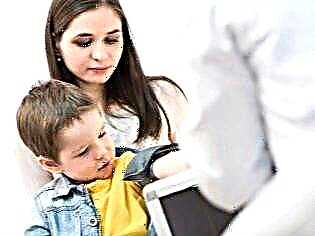

- Behavior change. During an exacerbation of pyelonephritis, the baby becomes more capricious, nervous. Pupils who have a latent course of the disease perform worse in school and may experience problems with the assimilation of a large amount of educational material. It is much more difficult for a sick child to concentrate and perform difficult tasks that require increased mental stress.
Diagnostics
The disease should be detected as soon as possible. The very first symptoms that appear should alert parents and motivate them to contact a specialist for advice.
Untreated acute pyelonephritis in most cases becomes chronic. Persistent forms of the disease are much harder to treat.
When detecting the first signs of illness in a baby, it is better to contact a pediatric urologist. This specialist has all the necessary knowledge and experience in the treatment of various diseases of the kidneys and urinary tract.

The doctor will first examine the baby and prescribe the entire range of examinations for the child. To establish the correct diagnosis, laboratory tests and instrumental studies are required. The basic tests for the diagnosis of various clinical forms of pyelonephritis are considered to be a general analysis of blood and urine.
Infectious variants of the disease are accompanied by the appearance of a large number of leukocytes and pronounced changes in the leukocyte formula. It changes the number of neutrophils, lymphocytes and monocytes, which indicates the presence of various infections in the child's body in the acute stage. Multiple accelerated ESR indicates the severity of the inflammatory process.
A general urine test is a mandatory test for any kidney disease and urinary tract, including with pyelonephritis. Inflammation is manifested by an increase in the number of white blood cells, a change in color, and in some cases, the density of urine.
To clarify the causative agent of the disease in infectious forms of pyelonephritis, doctors use an additional laboratory test - bacterial culture. He will not only be able to identify the cause and causative agent of infectious pyelonephritis, but also give clarifications to which antibiotics he is sensitive. Such a test is mandatory for choosing the optimal therapy tactics.


Pediatric urologists can also prescribe an ultrasound examination of the kidneys and urinary tract for a child. This method allows you to identify various structural abnormalities and pathologies of the structure of the kidneys, which lead to various violations of urine diversion.
Ultrasound of the kidneys is a mandatory examination with obstructive pyelonephritis. The method is safe and can be used even in the smallest patients.Also, ultrasound examination of the kidneys is carried out for infants who have risk factors for the development of renal diseases.
In older children, a special x-ray examination is performed to determine the functional ability of the kidneys - urography. For this, a special substance is injected through the vein - urocontrast. It selectively penetrates the kidney tissue and urinary organs of the child and stains them.


Several x-rays are taken during the procedure to give a descriptive picture of how the kidneys form and excrete urine. The study has a number of contraindications and is prescribed only by the attending urologist.
In some countries, doctors use radioisotope renography. It consists in the introduction of a special radio substance that selectively penetrates the renal tissue. Usually this method is used to identify unilateral pathologies.
In our country, due to the large number of contraindications to this method, including severe radiation exposure, this study is not widespread.
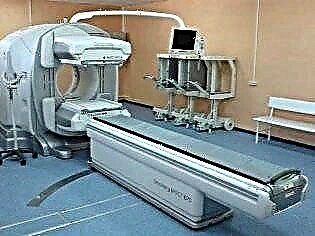

Several diagnostic tests are required to make a correct diagnosis. To accurately talk about the presence of chronic pyelonephritis, it is required to detect clinical and / or laboratory signs of the disease for a long time.
It is not possible to speak about the presence of chronic pyelonephritis in a child using only one general analysis of urine.
In the course of the development of the disease, mandatory monitoring by doctors for changes in analyzes is required. A competent and attentive attitude to the baby's condition will help prevent multiple negative complications and consequences of the disease in the future.
Complications
The latent course of pyelonephritis is dangerous by the development of long-term consequences. It is impossible to notice them in the early stages of the disease. They usually take enough time to form. A complication of acute pyelonephritis is the chronization of the process, and its transition to a chronic form. Complicated options are much more difficult. Usually, their treatment is carried out in a hospital setting.


Pyelonephritis has a fairly favorable prognosis with a properly selected treatment regimen. Complications of the disease occur only in 5-10% of babies. The most dangerous of them is the formation of renal failure. This pathological condition is characterized by a violation of all the basic functions that the kidneys normally carry out.
Impaired urine excretion leads to excess accumulation of metabolic products that poison the child's body. The initial stages of renal failure are treated conservatively with drugs. For a long time, the current state already requires specialized therapy - hemodialysis.


Infectious pyelonephritis can be complicated by purulent inflammation. This leads to the fact that an abscess appears on the kidney.
The danger of this pathological condition is that a purulent formation can suddenly burst with the outflow of pus into the abdominal cavity. This leads to the development of bacterial sepsis. Such an emergency requires immediate hospitalization of the child in a hospital. Kidney abscesses are treated with surgery.
The late stages of pyelonephritis are accompanied by pronounced disorders of the structure of the urinary organs. This leads to the fact that the kidneys shrink and shrink.
Such a change in structure also contributes to violations in the work of the organ. A huge amount of waste metabolic products accumulates in the blood, which leads to a state of uremic intoxication. A nephrologist deals with the treatment of shriveled kidneys (nephrosclerosis).


Treatment
To eliminate unfavorable symptoms in all types of pyelonephritis, the appointment of a whole range of therapeutic measures is required. They include:
- adherence to a diet;
- correct daily routine;
- drug therapy;
- the appointment of special medicinal herbs with uroseptic action;
- spa treatment during periods of remission of the disease.
To choose the right tactics for treating a child, a doctor must be examined. Obstructive pyelonephritis is the reason for contacting the operating urologist. In this situation, surgery may be required.
For young children, surgery is usually not performed, but conservative treatment is prescribed. Doctors resort to operations only if the previous treatment with medications was not effective, or the baby has pronounced anatomical defects in the structure of the kidneys.


The duration of therapy can be different. Acute pyelonephritis usually heals in 10-14 days. The duration of the exacerbation of the chronic form is impossible to predict.
In some cases, adverse symptoms resolve within a week of their first appearance, or may develop for about a month. In weakened children, exacerbation of chronic pyelonephritis usually lasts longer.
The choice of treatment tactics also depends on the cause that caused the disease.
If pyelonephritis has arisen against the background of any infection, then in order to eliminate the adverse symptoms, the mandatory prescription of antibacterial and antiviral drugs is required.
For the treatment of obstructive pyelonephritis in very young children, symptomatic agents are used, the action of which is aimed at improving urinary excretion and normalizing optimal kidney function.


Secondary non-infectious pyelonephritis are treated in the acute period with herbal medicine, and during remission through spa treatment.
Babies with chronic pathologies of the excretory system and kidneys should definitely undergo annual therapy in a sanatorium. The duration of the voucher for the course of treatment should be 14-21 days. Usually this time is quite enough to complete all the procedures that are prescribed to the child to improve the functioning of his kidneys.
Doctors recommend that young patients undergo spa treatment at least once a year, and if possible, more often.
After the therapy in the sanatorium, the child's kidney performance improves, urination is normalized. In the general analysis of urine, the total number of leukocytes decreases and various salt crystals are absent.


Unfortunately, the effect of this treatment is not permanent. Usually, the improvement lasts for 6-8 months, after which the kidney performance gradually begins to decline. To maintain the achieved result, the treatment must be repeated regularly.
Diet
Therapeutic nutrition for babies with pyelonephritis should be different. During the height of the disease, they are recommended a lightweight dairy-vegetable diet.
At this time, they are removed from the children's diet. all hard-to-digest foods, especially those of animal origin.
The main emphasis in nutrition should be on easily digestible protein sources: milk and dairy products, white fish, lean chicken and turkey. Each meal should be supplemented with plant-based foods such as fruits and vegetables.


The need for protein per day ranges from 1.5-2 grams / kg of the child's weight. Exceeding the norm in the acute period of the disease is not worth it, as this contributes to an excessive load on the kidneys.
The daily intake of salt is limited. It is enough for a baby to consume no more than three grams per day - less than a teaspoon. Excessive use of table salt can lead to the appearance or intensification of swelling on the face.
Drinking regimen plays a very important role in the treatment of pyelonephritis. In order to prevent unnecessary edema and kidneys to work well, it is enough for the baby to drink his daily fluid intake. This value is determined by the age of the child.
On average, students and teenagers should drink about 1-1.5 liters of liquid per day. Various berry fruit drinks and compotes are perfect as drinks.
During remission of pyelonephritis, nutritional therapy changes somewhat. The drinking regime is also maintained, but more of the usual products are added to the baby's diet. The child is allowed to give all types of lean meat, poultry, fish, dairy products. For a child's body to receive natural sources of vitamins and microelements, it is required to include fresh fruits and vegetables in the daily diet. Try to choose fruits according to the season, do not overload the baby's menu with tropical fruits.


Children with signs of pyelonephritis and a tendency to form edema should eat fewer foods, which may contain table salt or sodium chloride. There are a number of foods that are high in salt. These include: various sausages and sausages, pickled and canned dishes, ready-made sauces and ketchup, chips and a variety of snacks, dried and salted fish. These products should not be in the children's diet. Too frequent consumption of such food contributes not only to the occurrence of edema in the presence of chronic kidney disease, but can also lead to the appearance of stones in the kidney tissue and other internal organs.
The nutrition of a baby with pyelonephritis should be balanced and varied.
At the heart of his therapeutic diet are various grains and vegetables, which provide the child's body with sufficient energy.


For a good functioning of the immune system, the child must receive a sufficient amount of protein products. They are also needed for its growth and full development. Regular adherence to the diet will help the baby maintain good kidney function and prevent new exacerbations of chronic pyelonephritis in the future.
Uroseptics
Drugs that have an anti-inflammatory effect on the organs of the excretory system and improve urination are called uroseptics. They can be in various forms of release. Most often these are tablets or syrups, as well as suspensions.
The selection of drug therapy and drug dosages is carried out by the attending physician. There are contraindications to each of the funds, which causes increased attention to their appointment in children.

To normalize urination in babies, the following uroseptic drugs are used:
- Fluoroquinolone antibiotics. These funds are among the most commonly prescribed for the treatment of various urinary pathologies.
- Antibiotics of the second and third generation cephalosporin series. Injectable forms of drugs allow their use in severe disease. They are prescribed for infectious pyelonephritis with established infectious agents. They have a pronounced effect against staphylococci and streptococci, as well as some anaerobic microorganisms.
- Sulfonamides. Currently, they are used quite rarely, since in most cases, doctors prefer drugs from other groups.
- Quinolone derivatives: oxolinic acid, cinoxazine. Not widely used in children's practice. Currently used extremely rarely.
- Various derivatives of nitrofuran: nitrofural, nitrofurantoyl, nifuratel and others. Appointed according to age indications. They are used in complex treatment.
- Vegetable uroseptics: lingonberry leaf, cranberry, lingonberry, parsley, juniper, wild rosemary, thyme, St. John's wort and others.


The selection of a uroseptic drug for the treatment of pyelonephritis is individual.
The therapeutic effect of many of these agents depends on the pH of the urine. So, in an alkaline environment, aminoglycosides and macrolides bring the maximum effect. For alkalization of urine, a dairy-vegetable diet is used. It helps to significantly enhance the effect of antibiotics.
The duration of taking antibacterial agents depends on many factors: the clinical form of pyelonephritis, the age of the baby, the presence of concomitant diseases, and the severity of the underlying pathology.
Medications
Drug therapy for secondary pyelonephritis is symptomatic. The selection of medicines is carried out taking into account the presence of adverse symptoms that are present in the child. The duration of treatment may vary. On average, it takes 10-14 days to improve well-being against the background of properly selected treatment.

If the cause of the disease is a bacterial or viral infection, then antibiotics or antiviral drugs must be included in the complex of therapy. Currently, doctors give preference to drugs with a wide spectrum of action. This allows you to act on several different groups of pathogenic microorganisms at once. The duration of antibiotic therapy for exacerbation of chronic pyelonephritis is usually 5-10 days.
Treatment of the disease is carried out sequentially. First, uroseptics and antibiotics of synthetic origin are prescribed, and then phytotherapy for final remission. It usually stretches over several weeks. During the entire course, control over the effectiveness of the prescribed therapy is mandatory. For this, urine tests and a control culture are performed.
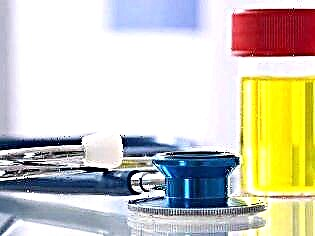

At a high body temperature during acute pyelonephritis, anti-inflammatory and antipyretic drugs are used. In children, drugs based on paracetamol and ibuprofen are more often used. They are prescribed in age dosages.
A decrease in subfebrile numbers is not required, as this can further lead to a weakening of immunity.
If the child has a disturbed outflow of urine, then mild diuretics (diuretics) are prescribed. You need to be very careful with the self-administration of these drugs! The presence of anatomical abnormalities in the kidneys and various strictures (pathological narrowing of the lumen) of the urinary tract are contraindications for their admission. Before using diuretics, be sure to consult with your doctor.
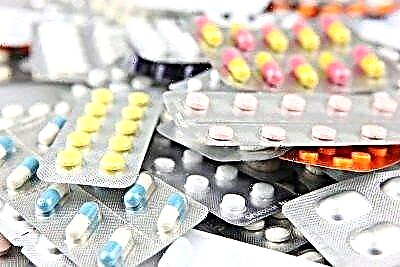
Also in the complex treatment of pyelonephritis there are various multivitamin and antioxidant complexes. The biologically active components included in their composition strengthen the child's immunity and give him the strength to fight the disease. Vitamins should be consumed both during the acute period of the disease and in courses to prevent new exacerbations.
Phytotherapy
An excellent way to treat pyelonephritis is herbal medicine. It is carried out with the help of various medicinal plants that have a pronounced uroseptic effect.
The course of phytotherapeutic treatment helps not only to eliminate the adverse symptoms of impaired urination, but also improves the performance of the kidneys.
For home use, you can use:
- Lingonberry leaf... Helps improve urination and relieves soreness when going to the toilet. The use of broths made from lingonberry or lingonberry leaves eliminates swelling and pastiness. The course of treatment is usually 2-3 weeks of daily intake. Decoctions should be used 3-4 times a day.
- Cranberry. For many centuries, the healing effect of this wonderful berry has been known throughout the world. Compote or fruit drink made from cranberries helps to cope with any inflammatory pathologies of the kidneys and urinary tract.These healthy berries also contain a fairly high amount of vitamin C, which is a natural antioxidant.


- Bearberry leaves. This medicinal plant grows mainly in the European part of Russia, as well as in some CIS countries. Bearberry has a remarkable anti-inflammatory, uroseptic effect. The use of decoctions made from this plant helps to normalize kidney function and eliminate the adverse symptoms of pyelonephritis.
- Kidney tea. Contains in its composition various combinations of medicinal plants with uroseptic and anti-inflammatory effects. It is prescribed in the period outside the exacerbation of the disease to lengthen the period of remission, as well as in the acute period to improve impaired urination.
Prevention
Preventing kidney disease is much easier than treating it. The available prevention rules should be followed throughout life.
It is very important to monitor compliance with preventive measures in children who have different risk factors for developing kidney and urinary tract diseases.
Prevention of pyelonephritis in a child includes:
- Mandatory identification and treatment of all foci of infection... Diseased teeth, chronic diseases of ENT organs, gynecological pathologies in girls - must be treated. The long course of chronic diseases and their frequent exacerbations contribute to the spread of infection throughout the body and involvement in the inflammatory process of the kidneys with the development of pyelonephritis.
- Leading a healthy lifestyle... Strengthening the immune system, good nutrition and optimally selected physical activity contribute to the active work of the immune system and prevent the development of inflammatory pathologies. To recuperate, the baby should fully rest and get enough sleep. Babies should have a night's sleep of at least 8 hours.


- Regular checkups. If a child has congenital malformations of the urinary tract or urinary tract, he must be observed by a pediatric urologist or nephrologist. Such children undergo general blood and urine tests 1-2 times a year to monitor the course of the disease. According to the indications, an ultrasound examination is performed, as well as other instrumental examinations.
- Vaccination by age. Many infections that affect the kidneys can be prevented with vaccinations. Following the vaccination schedule will prevent dangerous kidney inflammation.
- Passage of sanatorium treatment. If the baby has risk factors, sanatorium treatment will help prevent the development of dangerous diseases, including chronic pyelonephritis.
For information on what pyelonephritis is in children, see the next video.

